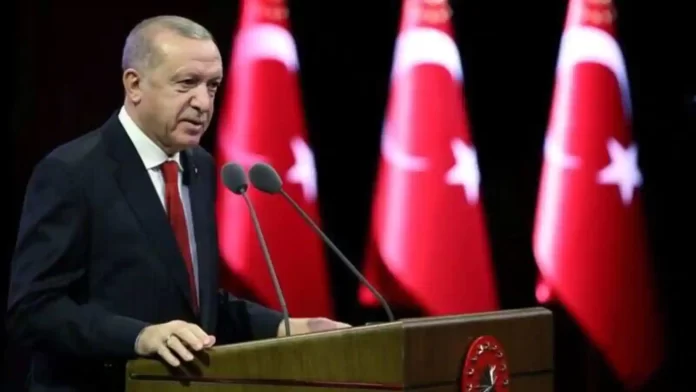“Get well soon” messages have been streaming all over the internet during past few weeks, wishing President Recep Tayyip Erdogan in order to wish him a speedy recovery as he tested positive for COVID-19.
In between the many wishers, there were two prominent leaders, ‘Abu Dhabi’s Crown Prince Sheikh Mohammed bin Zayed Al Nahyan (MBZ) and Israeli President ‘Isaac Herzog’ a significant development in light of Turkey’s normalization efforts with the United Arab Emirates (UAE) and Israel.
While President Erdogan is planning to visit the UAE in the following initial week, and the Israeli President is expected to visit Turkey in mid-March.
From the Turkish viewpoint, the normalization efforts with both countries are in full swing for the greater good of the Middle East and beyond.
Despite all this, President Erdoğan and Foreign Minister Mevlüt Çavuşoğlu recently stated that the rapprochement with Israel would not impact Ankara’s traditional stance on the Israeli-Palestinian conflict.
Çavuşoğlu made it clear that the normalization would not go further at the cost of Palestinian “as some countries have done in the past.
Many saw the statement of the Minister as a slight hint directed at the UAE, Egypt and Saudi Arabia, the three Gulf states blaming of making concessions for Israel and contradicting global law normalizing ties with the Jewish state in the fall of 2020.
It is impossible to expect that Turkey will ignore human rights and international regulation offences while normalizing relations with Israel and the Gulf. This is because Turkey places people and principles at the centre of its foreign policy, which it has no intention of compromising on.
While it may sometimes come at a cost, Turkey has been doing everything it can to uphold and follow these moral principles within the international system, drifting from its humanitarian and legal foundations.
In fact, even if relations do normalize, Turkey will continue to point out what it considers right or wrong about the conflicts in the Middle East. This approach does not ignore Turkey’s opinions that differ from that of Israel and the Gulf states. Instead, Ankara opts to act after assessing issues while keeping in mind mutual interests.

